Ars Technica

This is your brain on horror movies
When we watch horror movies, our brains are hard at work, with lots of interconnected cross-talk between different regions to ...

Gwyneth Paltrow’s Goop under fire again for ‘exploiting health issues in order to make money’
Gwyneth Paltrow’s contextual commerce company Goop is still making more than a dozen false and misleading health claims about the ...
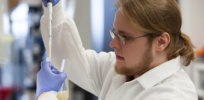
Re-engineering yeast to create biofuel appears possible, ‘but the effort involved is intimidating’
A little while ago, we covered the idea of using photovoltaic materials to drive enzymatic reactions in order to produce specific chemicals ...
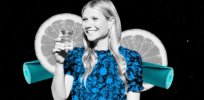
Stepping in Goop: Gwyneth Paltrow’s Netflix series promotes ‘junk science, gibberish and unproven health claims’, says microbiologist
In the third episode of Goop's Netflix series, a female guest remarks that we women are seen as "very dangerous ...
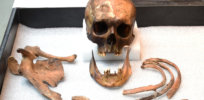
‘Connecticut vampire’s’ identity revealed through genetic analysis of remains
Back in 1990, children playing near a gravel pit in Griswold, Connecticut, stumbled across a pair of skulls that had broken ...
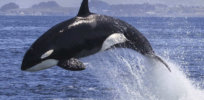
‘Grandmother hypothesis’ may explain why killer whales and humans evolved menopause
There's a rare human trait that doesn't often make it into debates about what makes our species unique: menopause. Humans ...
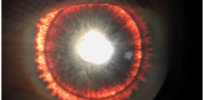
‘Eye of Sauron’: Man’s strange eyes linked to rare genetic condition
Doctors in Texas came face to face with a dark, spine-tingling eye that looked rimmed by flames—or, as they calmly ...
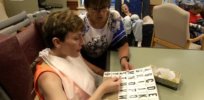
Chinese scientists may have figured out how to attack the protein created by Huntington’s damaged gene
Huntington's disease is caused by a dominant mutation, meaning that anyone who inherits it will develop the disease. ... Despite ...

Extra copies of Denisovan, Neanderthal DNA helped humans adapt to ancient environments
University of Washington geneticist PingHsun Hsieh and his colleagues found Neanderthal and Denisovan versions of some genes in the genomes ...
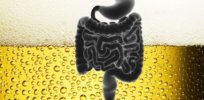
The man who was always drunk, but never drank alcohol: Scientists unwrap the mystery of ‘auto-brewery syndrome’
After years of inexplicably getting drunk without drinking alcohol, having mood swings and bouts of aggression, landing a DWI charge ...
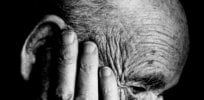
Reversal of fortune for ‘failed’ Alzheimer’s drug? Biogen now seeking FDA approval, based on new test data
An experimental treatment for Alzheimer's disease is headed to the Food and Drug Administration for approval—despite the fact that it ...

Medieval Europe’s devastating Black Death was caused by just two strains of the disease
The Black Death ravaged medieval Western Europe, wiping out roughly one-third of the population. Now researchers have traced the genetic ...

Man with at least 17 children sues fertility clinic for being ‘incredibly irresponsible’ with his sperm
An Oregon doctor filed a $5.25 million lawsuit [October 2] against a fertility clinic at the Oregon Health & Science ...
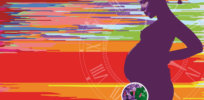
Forget fecal transplants—vaginal fluid swaps could ‘revolutionize’ women’s health
In the afterglow of successful fecal transplants, researchers are now sniffing around vaginal fluids for the next possible bodily product ...

Infographic: How an asteroid killed the dinosaurs
The Cenozoic is the name geologists give to the era spanning the last 66 million years, and it started with the mass ...

Growing some crops under solar panels boosts water efficiency, electricity generation
Solar panels might seem like they’re in direct competition with plants. One is catching sunlight to do photosynthesis, the other ...
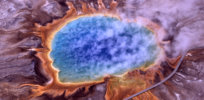
Infographic: Meet Asgard archaea, a simple cell that just might look like one of our oldest relatives
The cells of all animals, plants, and fungi have an impressive complexity, with a variety of compartments specialized in various ...

Viewpoint: Elon Musk’s Neuralink dreams are a mix of reality and ‘science fiction’
So, how precisely is Neuralink pushing the envelope? ... A lot of Neuralink's vision may sound difficult to believe, but ...
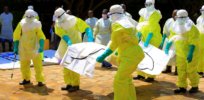
2 experimental Ebola treatments show promise in clinical trials, boosting survival rates
For the first time, preliminary clinical-trial results suggest that two experimental Ebola drugs can lower the death toll of the ...
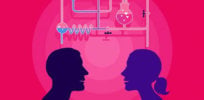
Does testosterone impact moral decisions? Not according to this research.
The Trolley Problem is a staple of ethics courses and has even made its way into prime-time television. It's a ...

Curaleaf’s unproven claims that CBD treats cancer, Alzheimer’s, chronic pain draws FDA warning
The company Curaleaf claims that it has developed products that can treat a slew of the most formidable conditions found ...
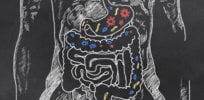
Viewpoint: Why the New York Times failed with its coverage of overhyped probiotics obesity treatment
Adding to the steaming pile of unsubstantiated hype over probiotics, the New York Times ran an uncritical article ... suggesting ...

Tiny electric signals in the brains of comatose patients may help predict who will wake up
Researchers may have found a way to detect inklings of consciousness in comatose and vegetative patients just days after they ...
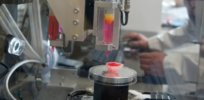
Vaccines for influenza, other diseases will be ‘printed’ at home in the future
Rather than warehouses of refrigerated cures for static diseases, we need a highly distributed agile system for producing vaccines and ...

Video: Tech guru and author Rob Reid on synthetic biology’s power to help or destroy us
In 2011, two separate research teams—one in Holland, the other in Wisconsin—set out to repair this "defect" in H5N1. By ...
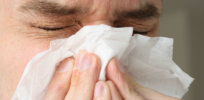
Why the world needs a DNA-based ‘threat-detection network’ to counter the rapid spread of pathogens
Our ancestors were accustomed to spending their entire lives in walking distance of their birthplace, but our modern world is ...
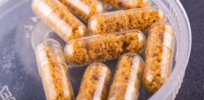
Fecal transplant death sparks new FDA screening precautions, pause of clinical trials
One patient has died and another became seriously ill after fecal transplants inadvertently seeded their innards with a multi-drug resistant ...
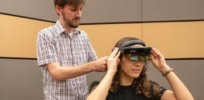
How augmented reality and avatars could change the way we interact
According to researchers at Stanford University, layering computer-generated content, like someone's avatar, onto a real-world environment will influence people's behavior ...

